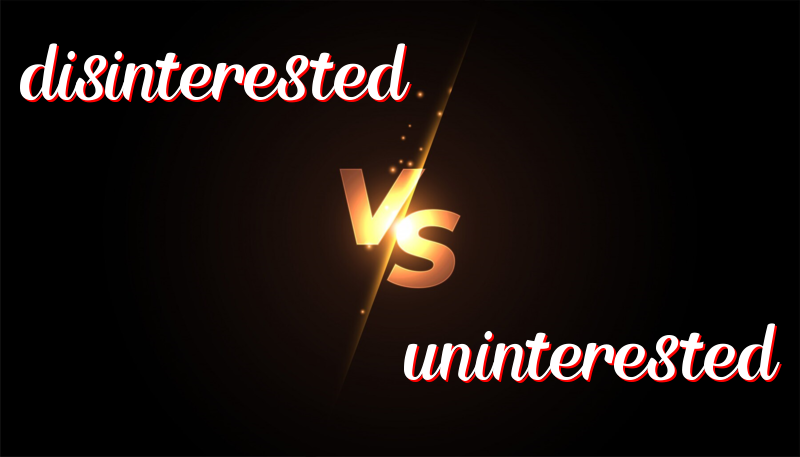Understanding the Difference Between Disinterested and Uninterested
Disinterested vs. Uninterested
History
In English, “disinterested” and “uninterested” are two words that people sometimes mix up. They both have the word “interest” in them but mean different things.
Disinterested: This word started being used in the 1600s. Long time ago, it meant “without being influenced” or being fair. It is used when someone is not taking sides.
Uninterested: This word was used later around the 1800s. It means “not interested” or not caring about something.
How to Use Them
Disinterested: When someone is fair and not taking sides, we use “disinterested.” For example, a judge in court should be disinterested.
Uninterested: When someone does not care about something, we use “uninterested.” For example, a student may be uninterested in a boring class.
Trick to Remember the Difference
To remember the difference, think of “disinterested” as being fair and neutral, like a judge. Think of “uninterested” as not caring at all, like when you don’t want to watch a boring movie.
Examples of “Disinterested”
- The referee was disinterested and made a fair decision.
- A disinterested person will listen to both sides equally.
- The teacher was disinterested in the argument and just wanted peace.
- It is important to be disinterested when judging a contest.
- A good leader should be disinterested to stay fair.
Examples of “Uninterested”
- The boy was uninterested in his homework and didn’t do it.
- She was uninterested in the game and left early.
- I am uninterested in sports and don’t watch them.
- The cat seems uninterested in the new toy.
- The students were uninterested in the old book.
Summary
So, remember:
- Use “disinterested” when talking about someone being fair and not taking sides.
- Use “uninterested” when talking about someone not caring about something.
This way, you’ll use the right word every time!

Leave a Reply
You must be logged in to post a comment.